Department of Chemistry Education Introduces Unipra South Pupils to Micro and Indigenous Science
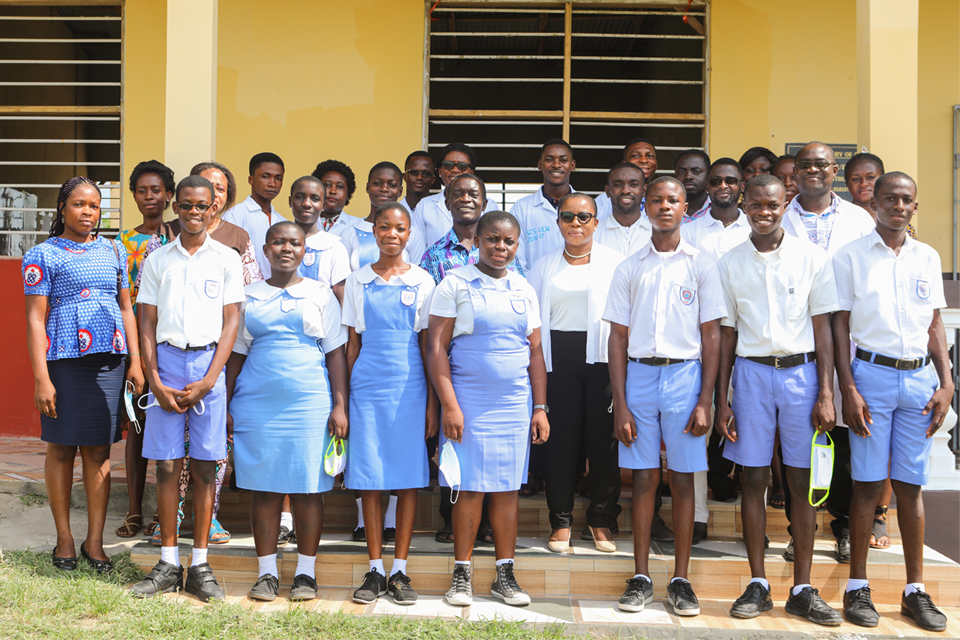
The Department of Chemistry Education in conjunction with the American Chemical Society has engaged pupils of University Practice Junior High School, South (Unipra South) in everyday simple chemistry activities on a microscale. This was to expose pupils to the chemistry around them and to inculcate into them the love for chemistry.
The project, dubbed “The Indigenous Chemistry in our Environment” broadened pupils’ understanding of the concept of acids and bases. They were exposed to the many different organic and mineral acids and bases that could be found around their homes and communities, and how their presence could be tested with some organic substances from their environment as well as with a special test paper called ‘litmus paper’.
This community outreach took place on Wednesday, 25th November, 2020, at the Unipra South in Winneba, Central Region, Ghana.
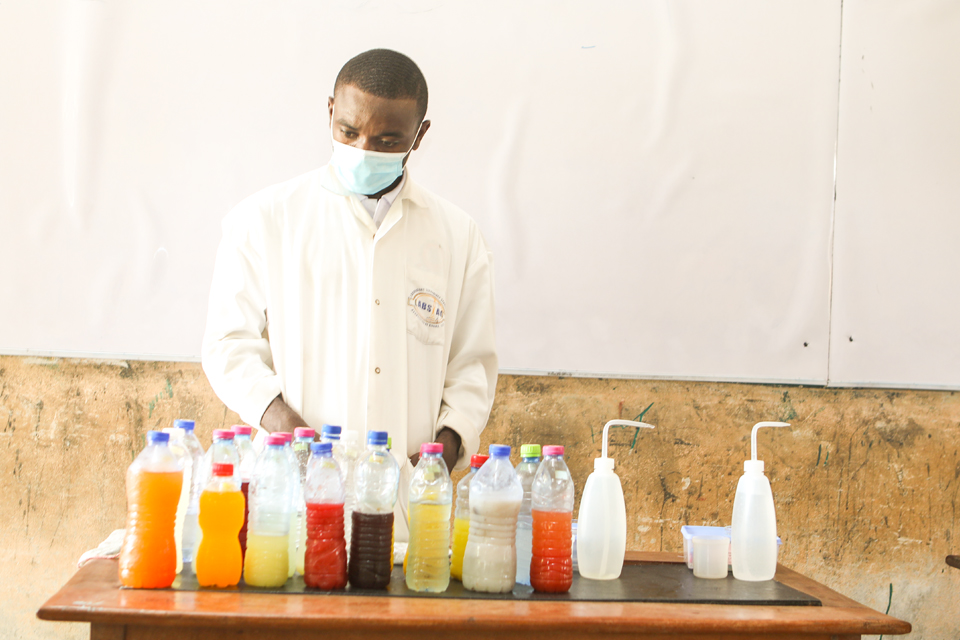
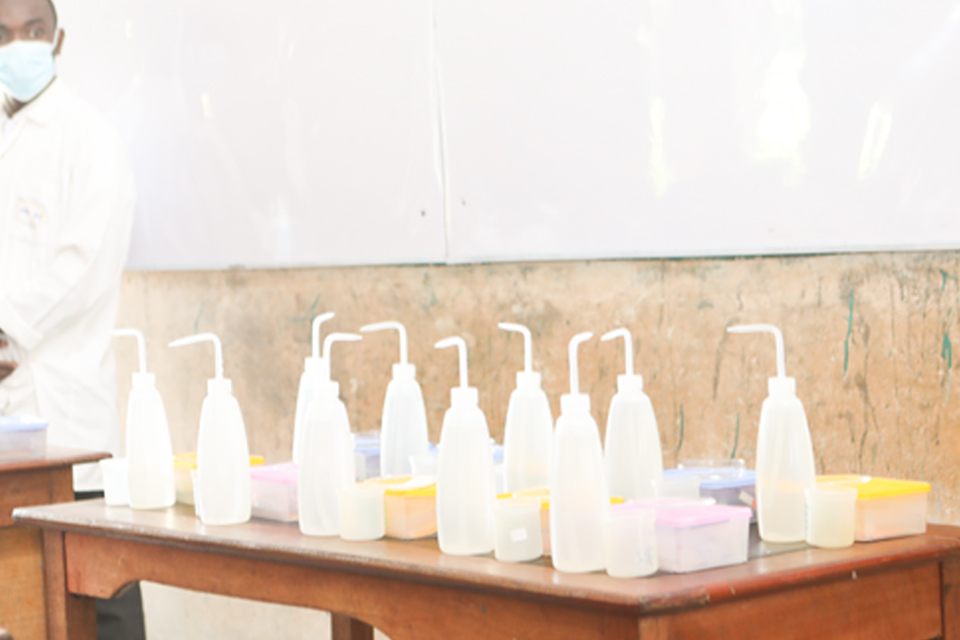
Pupils discovered that fruits such as lemons, lime, oranges, pineapple among others contained acids, based on their own analysis. In the same vein, they discovered that certain substances like wood, ashes and soaps contained bases. More importantly, they were able to use the concept of colour change in the detection of acids and bases to rate their acid and base strengths. Pupils were also able to discuss their implications in many aspects to life and on the environment.
The Ag. Head, Department of Health Administration and Education, who is also a Senior Lecturer in the Department of Chemistry Education, Dr. Arkoful Sam, delivered the purpose for the outreach on behalf of the Dean, Faculty of Science Education, Prof. Ruby Hanson.
He stated that the research findings on the decline in the number of students into the sciences triggered the initiative to build pupils’ interest and love for science, specifically chemistry, at an early age.
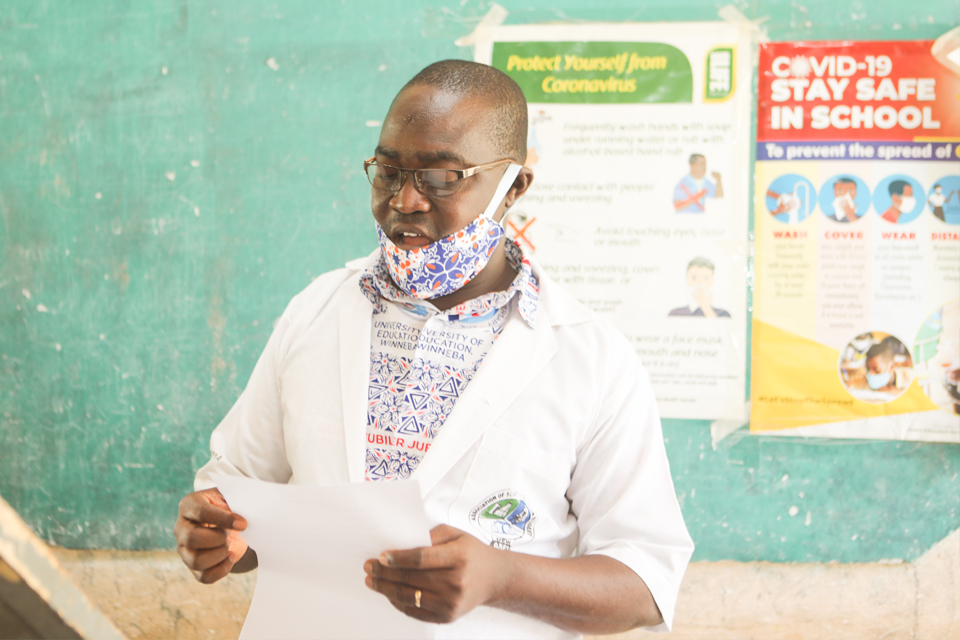
“Our mission here is to bring the University to your doorstep and guide you to practice Chemistry. We want you, on your own to find out how colour changes occur when acids and bases come into contact with litmus papers or other indicators. You will get to know that soaps sold on our markets or shops contain bases. You will also be required to rate the strengths of these acids and bases so that you will know how much acids or bases you take into your bodies and discuss their effects. You will furthermore find out the nature of car battery and be extra careful when dealing with it,” he said.
The Head, Department of Chemistry Education, Prof. John K. Eminah introduced the concept of acids and bases to the school pupils and encouraged them to engage in the outlined activities to inform their own concepts of acids and bases from the local materials that were provided.
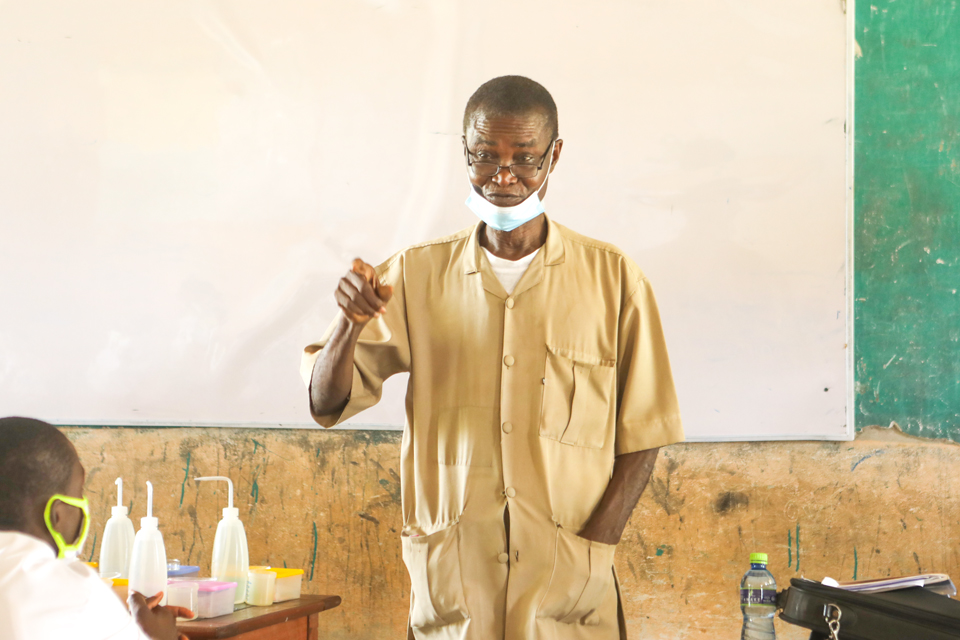
The Science, Technology, Mathematics and Innovation Education Coordinator of Effutu Municipal Education Office, Ms. Mildred Boafo, who represented the Municipal Director of Education, Mrs. Mabel Judith Micah, encouraged the pupils particularly, the females never to see science as a difficult subject.
“Don’t say science is difficult. No, science isn’t difficult at all. If you persevere, you can go higher. A limited number of ladies read science so, there are so many opportunities for these few. With the little effort you put in as a female, you’ll make it. This is because so many people are running away from that field. So ladies, please, I’m encouraging you to come to the science field and you will have a lot of opportunities.”
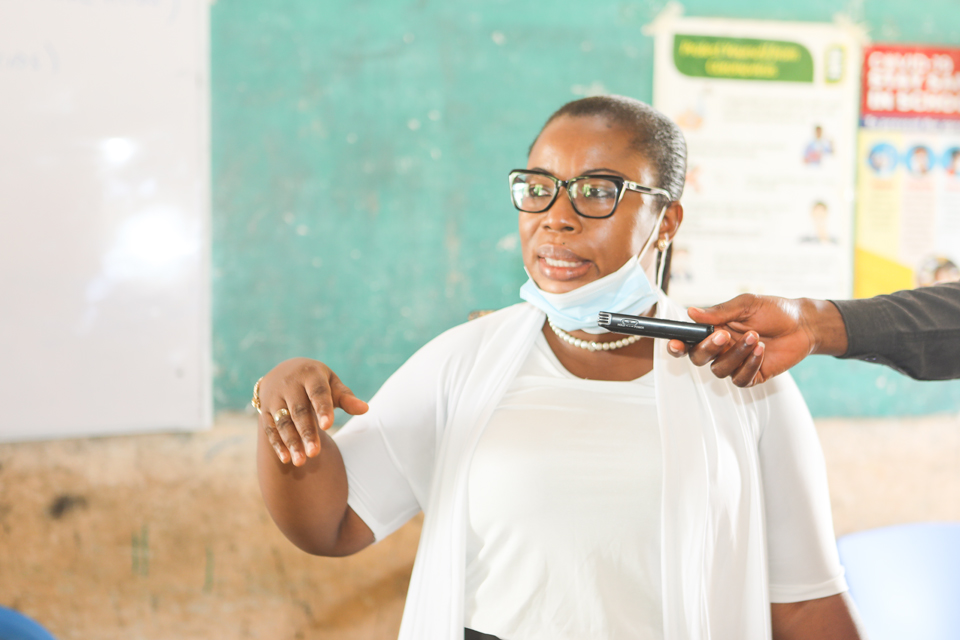
“To the gentlemen, I urge you all to take your science subjects seriously. It will take you somewhere and it will help mother Ghana to develop in so many ways. When we discovered our oil and gas fields, the technology being used I learnt required that we employ people from outside to work over there, but if we’d ventured into science and technology that money used to pay those outsiders would have remained in our country and it would have helped us to develop a lot,” she stressed.








